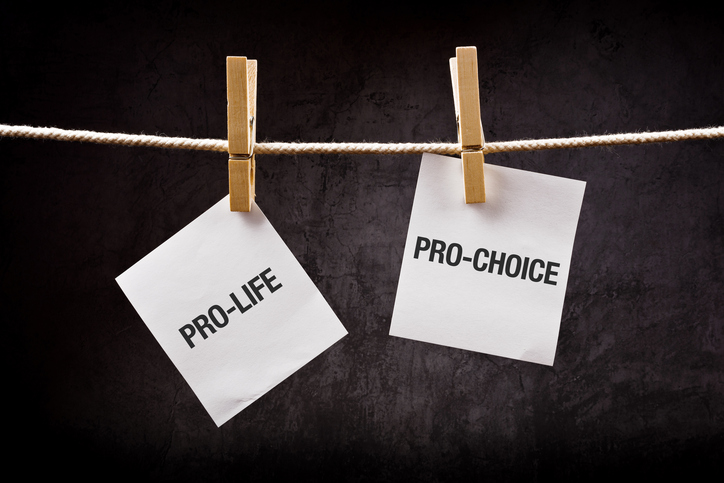
A study that claimed women can “safely” abort their pre-born children using abortion pills is being debunked by critics as unscientific, problematic, and lacking any real credibility. The study tracked the outcomes of 1600 women in Ireland who had obtained the pills from the Netherlands-based pro-abortion organisation Women on Web. “The main problem with this study is that of the 1600 women who self-induced medical abortions without medical supervision, — 600 (over 30 percent) did not respond to a follow-up survey,” said Michael J. New, Visiting Associate Professor of Economics at Ave Maria University and an Associate Scholar at the Charlotte Lozier Institute. “There is a good chance that women who did not follow up were more likely to experience medical complications than those women who were happy to participate,” he added. Professor New called the study “not particularly rigorous.” The study used a non-random sample and was based on self-reporting by participants.

A printer who declined to make shirts for a US gay pride event because it would have violated his conscience has won his court case. Blaine Adamson was sued after turning down the order because it promoted a message that conflicted with “sincerely held religious beliefs”. On Friday, an appeals court in Kentucky found in favour of the Christian designer with one judge saying there was no evidence Adamson had turned down any work because of a customer’s sexual orientation.

A Bill tabled by left-wing TD, Ruth Coppinger, would “destroy denominational education” by stripping faith schools of their right to teach religion in their own way, to have a religious ethos and to admit children of their own faith communities first, the Iona Institute has said in a statement yesterday. Meanwhile, Education Minister, Richard Bruton has rejected the Bill saying that it would be discriminatory against children from minority religions. As written, he said, the legislation would “put a red line through schools” such as Educate Together or Gaelscoileanna. The Bill would amend the Education Act to delete the reference to the “characteristic spirit” of a school and replace it with “constitutional and human rights of all persons concerned”. Addressing the author of the bill, Deputy Ruth Coppinger, the Minister said, “You say your Bill will protect minority religions. I say the opposite. If you want your child raised in the ethos of your religion you can’t do that under this Bill.”

Research published in the British Medical Journal has claimed that Abortion pills bought online can be a safe “alternative” to travelling for abortion. Such pills can be used to induce abortion up to 10 weeks of pregnancy. However, the study was based on a non-random sample and on self-reporting by respondents. The main authors are involved in the distribution of the online pills. While the importing of abortion pills is strictly speaking illegal, the organisation behind the study claim they have sold the pills, mifepristone and misoprostol, to 1,636 women on the island of Ireland during the two years. In a follow-up survey, to which over 1000 women responded, “ 94.7 per cent reported successfully ending their pregnancy without surgical intervention. Seven women (0.7 per cent) reported receiving a blood transfusion and 26 (2.6 per cent) reported receiving antibiotics. No deaths . . . were reported by family, friends, the authorities or the media.” Ninety-three reported experiencing symptoms for which they were advised to seek medical attention, of whom 87 did seek attention. Of the five who did not report, none reported any adverse outcome.

The rapid decline in churchgoers in the UK may be slowing thanks to a rise in patriotism and pride in Christianity, a new report is suggesting. The trend appeared in an analysis of two major surveys of British attitudes by a Professor of theology and the sociology of religion at St Mary’s University, Twickenham. Professor Stephen Bullivary told the Telegraph, “People see Christianity as an expression of Englishness. There has been more rhetoric around Britain being a Christian nation. People are looking for ways to connect with others. I suspect a larger proportion of people who do say they are Anglican tend to be patriotic”. In the period from 2009, the proportion of non-religious people has declined by 2% whereas those who self-describe as Anglican has increased by almost 1%. Professor Bullivary commented, “[a]fter decades of bad news, this is certainly welcome for the Church of England. If I was in the Anglican Church I would be celebrating this.”

Archbishop William Lori has offered a cautious welcome to President Trump’s executive order on religious liberty. The order was designed to protect religious organisations from being forced into actions that would compromise their ethos. Specifically, it should help them from having to comply with a healthcare mandate that they must buy “health” insurance for their employees that includes contraceptive and abortifacient coverage. Speaking to Crux, he said “this looks like a good development, we’re glad to see it, especially those parts that promise us some relief from the contraception mandate in the Affordable Care Act”. However, he added a note of caution: “First, the devil is in the details, so let’s see how it works out. Secondly, while this is welcome, there are still a lot of other challenges, even at the federal level, that lay before us.” Specifically, on the controversial mandate, he said: “Maybe we can get ‘preventive services’ redefined, so they really do pertain to preventing diseases and not to inducing abortions or preventing birth.”



A draft of the UK Labour Party’s election manifesto reveals that they would extend the UK’s abortion regime to Northern Ireland. The document states that Labour would “continue to ensure a woman’s right to choose a safe, legal abortion – and we will legislate to extend that right to women in Northern Ireland.” The 1967 Abortion Act, which legalised the practice in Britain, never applied to Northern Ireland where abortion is available only in very limited circumstances. According to the BBC, there were 16 abortions in Northern Ireland in 2014/15, compared to 184,571 in England and Wales. This does not include the number of Northern Ireland women who travel to Britain each year for abortions.

The lower House of the Romanian parliament has given its approval to holding a referendum to define marriage as the union of a man and a woman. The measure now goes to the Romanian Senate and, if passed there, a referendum will then be held within 30 days. A petition signed by over 3.1 million Romanian citizens had asked for the referendum and the lower House duly gave its consent by a vote of 232 for, 22 against with 13 abstentions. The revised Article 48, Paragraph 1, of the Constitution of Romania, as proposed by the Citizen’s Initiative, would state: “The family is founded on the freely consented marriage between a man and a woman, their full equality and the right and duty of parents to ensure the upbringing, education and instruction of children.”